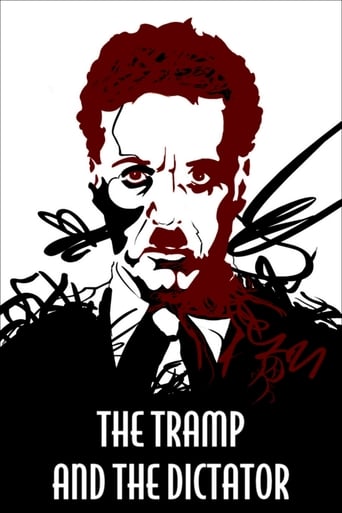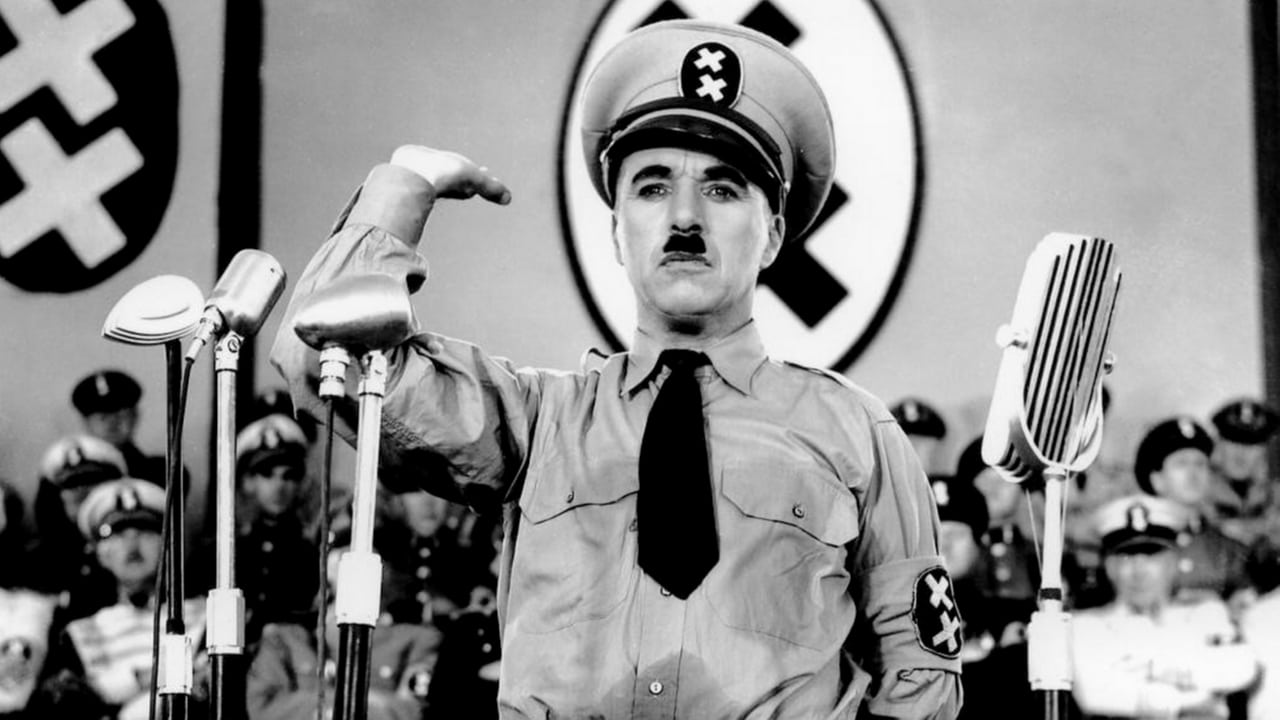MartinHafer
This film was spurred on by Charlie Chaplin's film "The Great Dictator"--a film in which he made fun of but also warned the world of the evil beast, Adolph Hitler. And, not surprisingly, it is included on the DVD for "The Great Dictator".It begins by discussing similarities between the two men--such as being born the same month of the same year. And, how the two were polar opposites--Hitler was never accused of being the funniest man on the planet. However, much of the film was not about their similarities and differences but was more of a 'making of' featurette. It discussed such things as the obsessive nature of Chaplin and his directorial style as well as the reaction to the film when it was released.My reason for watching this, more than any, was that it was made by Kenneth Brownlow--one of the foremost experts on silent comedy and who had created the very best documentaries on Chaplin, Keaton and Lloyd. Secondly, I love Chaplin's full-length films--though I should admit that "The Great Dictator" is among my least favorite of these films. Folks who adore this film would probably get a bit more out of the documentary. I also really preferred his film "Unknown Chaplin" (also by Brownlow) as it gave much more insight into Chaplin's directorial style. Still, it's well worth seeing and offers a few really nice insights into "The Great Dictator".
blanche-2
Kenneth Branagh narrates "The Tramp and the Dictator," a 2002 documentary put together by film historian Kevin Brownlow and Michael Kroft about the making of Charlie Chaplin's film "The Great Dictator." For anyone who hasn't seen it, it's an incredible 1940 film about the dictator of Tomania, Adenoid Hynkel and the Jewish barber who bears a strong resemblance to him.This documentary at first focuses on the similarities between Hitler and Chaplin as far as their backgrounds, love of the arts, and poverty and how each man overcame these adversities, one to become perhaps the greatest artist the world has ever known, and the other the most evil dictator."The Tramp and the Dictator" then goes into Chaplin's decision to make the film, the shove-it-under-the-rug attitude of Hollywood at that time, and shows color footage of the movie (it was released in black and white) as it was being filmed, and some footage of Chaplin directing.There are reminiscences by Chaplin's son Sydney, screenwriter Walter Bernstein, writer Budd Schulberg, former SS officer Reinhard Spitzy, and others."The Great Dictator" was a controversial film for its time. It stands today as a strong political statement by Chaplin and a brilliant film for its mixture of parody and drama. He was advised not to make it. His answer? "What can he do? He can't possibly be any worse than he already is."
CitizenCaine
Kenneth Branagh narrates this documentary directed by film historian Kevin Brownlow and Michael Kloft about the making of Charles Chaplin's film The Great Dictator. The film contrasts the early lives of both Chaplin and Hitler in a way which demonstrates the uncanny similarities between them. Both were interested in the arts at young ages: Chaplin escaped early poverty by performing in music halls; Hitler was rejected as a painter, fell into despair, and became a vagabond who later joined the German army. The film traces Hitler's rise to power and shows archival photos of him with a full mustache in his twenties. It was Hitler who later adopted Chaplin's mustache due to the latter's world wide popularity, indicating Hitler's shrewishness as a public relations wizard. The film contains interesting anecdotes regarding Chaplin's decision to make the film and the political dilemmas he faced in this undertaking. Several well known figures from the film world as well as witnesses during the war years contribute their thoughts and reminiscences. Blacklisted writer Walter Bernstein, writer Ray Bradbury, film critic Stanley Kauffmann, writer Budd Schulberg, Nazi insider Reinhard Spitzy, and Chaplin's son Sidney are chief among them. The film was produced by Turner Classic Movies and is an excellent companion to watching a film that was daring for its time and still stands as an entertaining parody of Hitler's Germany. ***1/2 of 4 stars.
dromasca
What can be said about one of the greatest movies in the history of cinema. It seems that a lot, and this documentary - actually a juxtaposition of two documentaries succeeds to tell a lot.The first part focuses on the parallel biographies of Charlie Chaplin and Adolf Hitler, the genial artist who made people laugh and the horrible dictator who entered history as one of the most evil people to have ever lived. One of the revelations of the movie is that the two were born the same week, and their biographies had no few common things. Very interesting color footage from the film studios taken by Chaplin's brother Sidney add a lot and the commentaries are solid, without being extremely deep. The only other remarkable thing I learned is that Hitler may have seen 'The Great Dictator' and actually enjoyed it. The supreme beast had a sense of humor.The second part is actually also interesting from a documentary point of view, telling the story of a few more Hitler films made during the war. The balance between art and propaganda inclined towards propaganda in most of these productions and none of course benefited from the genius of a Chaplin, so they were much less successful and are now forgotten.


 AD
AD


